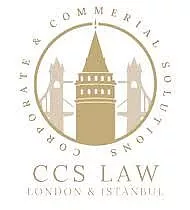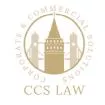- within Immigration topic(s)
- in United States
- within Immigration topic(s)
- in United States
- with readers working within the Banking & Credit industries
- within Immigration, Environment and Real Estate and Construction topic(s)
Foreign nationals planning to visit, reside, or work in Turkey may face significant legal barriers due to administrative measures known as "foreign restriction codes" (tahdit kodları). These codes, often imposed without prior notice, can result in entry bans, deportation orders, or conditional entry requiring pre-approval. Knowing the types, implications, and legal remedies associated with these codes is essential for any foreigner engaging with Turkey's immigration system. In this comprehensive article, CCS Law explains the purpose, categories, and solutions related to these restriction codes under Turkish law.
What Are Foreign Restriction Codes?
Foreign restriction codes (tahdit kodları) are administrative codes used by Turkish authorities to monitor and control the entry and exit of foreign nationals. These codes serve as tools to enforce visa, residence, and public order regulations, and can impose a ban on entering Turkey, require prior approval before entry, or result in the deportation of foreign nationals residing in the country.
The restriction may be based on issues such as criminal activity, visa or residence permit violations, threats to public health or public order, or national security concerns. These codes are categorised by letters and numbers, such as Ç, G, N, and V, each representing a distinct basis and administrative implication.
Why Are Foreign Restriction Codes Imposed?
Foreign restriction codes are designed to protect public order, security, and health. The imposition of a code may result in:
- Immediate deportation;
- Entry bans ranging from a few months to several years;
- Requirement for special permission or "annotated visas" (meşruhatlı vize) to enter Turkey;
- Revocation of existing residence or work permits.
Some codes function purely for informational purposes, while others have immediate executive consequences.
Categories and Examples of Common Foreign Restriction Codes
Ç Codes – Violations, Illegal Entry, and Public Health Risks
These codes mostly relate to immigration violations or health/security concerns.
- Ç-101 to Ç-105: Entry bans ranging from 3 months to 5 years for visa, residence, or work permit violations.
- Ç-113: 2-year entry ban for illegal entry or exit.
- Ç-114 – Ç-116: Deportation for judicial proceedings, released prisoners, or those earning illegally.
- Ç-117 – Ç-120: Bans for working illegally or failing to pay fines for visa/work violations.
- Ç-136 – Ç-138: Bans due to unpaid travel costs or re-entry despite existing bans.
- Ç-141 – Ç-152: Codes based on public or international security concerns, including terrorism (Ç-141) and human trafficking (Ç-151).
- Ç-166 – Ç-179: Covers issues such as lack of financial means, organ trafficking, or other administrative failures.
G Codes – Criminal and Security-Based Restrictions
These codes target individuals involved in or suspected of criminal or terrorist activities.
- G-26, G-34, G-42 to G-67: Codes for organisational activity, forgery, drug crimes, theft, or threats.
- G-78, G-82, G-87, G-89: Restrictions for national security concerns, contagious diseases, or being flagged as a foreign terrorist fighter.
K Codes – Smuggling-Related Alerts
These apply to individuals wanted for smuggling offences and may result in border holds or surveillance.
M Codes – Interpol Notices
- M-67: Indicates an Interpol Blue Notice regarding fraud, requiring pre-approval for entry.
N Codes – Pre-Approval Required for Entry
These are informative or conditional codes, often resulting in indefinite bans due to the difficulty of obtaining pre-approval.
- N-67 to N-97: Codes for fraud, failure to pay fines, or address declaration failures.
- N-99: Applied when Interpol has issued a search warrant.
- N-119 to N-172: Codes for various unpaid fines, illegal work, or failure to meet administrative obligations.
O Codes – International Protection and Asylum Issues
- O-100 to O-177: Entry bans for individuals whose international protection applications are rejected, withdrawn, or found inadmissible.
V Codes – Residence, Marriage, and Address Declarations
- V-68 to V-159: These include bans related to residence permit issues, false marriages, undisclosed addresses, and international protection complications.
Y Codes – Interpol Red Notices
Y Codes are reserved for Interpol Red Notices, indicating serious international criminal allegations or convictions.
Legal Remedies: How to Remove a Foreign Restriction Code
1. Administrative Application
- Submit a reasoned petition to the Directorate General of Migration Management (Göç İdaresi) within 60 days.
- The authority has 30 days to respond; otherwise, the request is deemed rejected.
2. Administrative Lawsuit (İptal Davası)
- May be filed directly or after administrative application.
- The court can issue a stay of execution (yürütmeyi durdurma) to suspend the code's effects.
- Lawsuit must be filed within 60 days of notification.
3. Meşruhatlı Vize (Annotated Visa)
- A special visa for individuals under entry ban, such as for family reunification, business, education, or medical treatment.
- Not available for all codes—especially in national security cases.
4. Annulment Lawsuit Against Deportation Decision
- Must be filed within 7 days of receiving the deportation decision.
- Deportation is paused during proceedings.
- Request to lift the restriction code must be expressly included in the lawsuit.
5. Objection to Administrative Detention
- For those detained in removal centres, objections can be made to the Criminal Magistrate's Court (Sulh Ceza Hakimliği).
- The court's decision is final.
Legal Procedure, Timeline, and Costs
- Timeframe: Removing a foreign restriction code may take up to eighteen months depending on court workload and appeal stages.
- Court Fees: The cost is approximately 4,000 TL, varying with the type of application (e.g., stay of execution, appeals, hearings).
Jurisdiction: Which Courts Are Authorised?
- Foreign Restriction Code Annulment: Handled by Ankara Administrative Courts.
- Deportation Orders: Must be filed in the local administrative court where the deportation decision was issued.
Why Legal Support Is Essential
Being subject to a foreign restriction code can severely affect your rights and future in Turkey, including:
- Losing residency or work permit rights;
- Being banned from re-entering Turkey for years;
- Facing difficulties in regularising your status, even if the original reason was minor or unjustified.
At CCS Law, we provide legal advice and representation to challenge these codes, including filing administrative appeals, court cases, and obtaining annotated visas where possible.
Final Remarks
Foreign restriction codes are a complex but critical part of Turkey's immigration enforcement system. Understanding their nature, categories, and the legal remedies available is vital for protecting your rights. Whether you're facing an entry ban due to a minor visa overstay or more serious allegations under national security provisions, you should act quickly and seek qualified legal assistance.
FAQ's
Q: What is a foreign restriction code?
A: A foreign restriction code (tahdit kodu) is an administrative measure used by Turkish authorities to control the entry, exit, and residence of foreign nationals, usually due to immigration violations, criminal activities, or public security concerns.
Q: Why are foreign restriction codes imposed?
A: They are imposed to protect public order, national security, and public health, and may result in entry bans, deportations, or the need for pre-approved visas.
Q: What are some common restriction codes and their implications?
A: Common examples include:
- Ç codes for immigration violations and public health risks.
- G codes for criminal and security threats.
- N codes requiring pre-approval for entry.
- Y codes indicating serious international criminal allegations (Interpol Red Notices).
Q: How can I remove a foreign restriction code?
A: You may:
- Submit an administrative application to Göç İdaresi.
- File an administrative lawsuit (iptal davası).
- Apply for an annotated visa (meşruhatlı vize) if eligible.
- Challenge deportation orders through annulment lawsuits.
- Object to administrative detention decisions.
Q: How long does it take to remove a restriction code?
A: It may take up to eighteen months, depending on the complexity and court proceedings involved.
Q: What costs are involved?
A: Court fees average around 4,000 TL, varying with specific applications and procedures involved.
Q: Which courts handle foreign restriction code cases?
A: Ankara Administrative Courts handle annulment of restriction codes, while local administrative courts handle deportation orders.
Q: Why is legal support essential when dealing with restriction codes?
A: Legal support is crucial because restriction codes can significantly impact your residency, employment rights, and future entry to Turkey. Professional legal representation helps protect your rights and navigate complex administrative procedures effectively.
The content of this article is intended to provide a general guide to the subject matter. Specialist advice should be sought about your specific circumstances.


